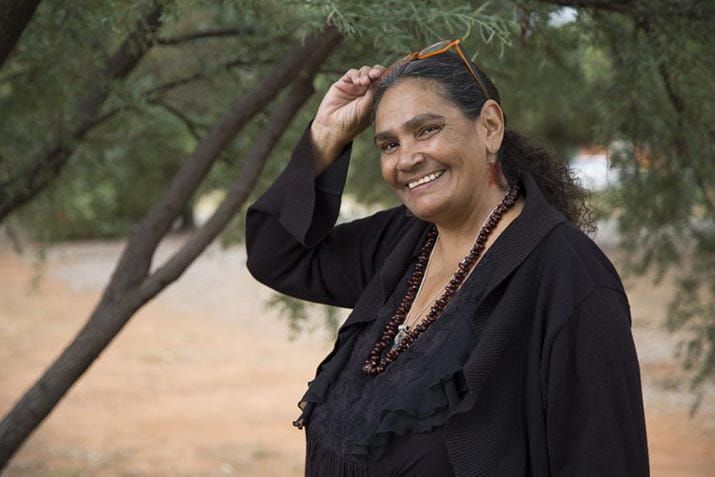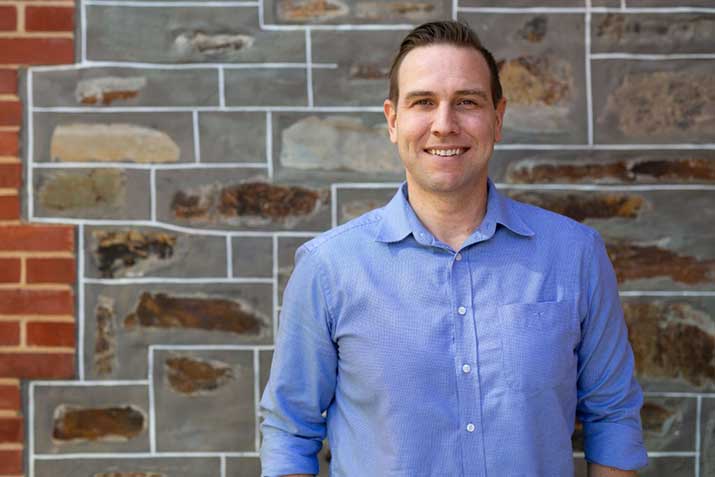How to become a psychologist
Evaluate, diagnose and treat patients with issues and concerns to promote emotional and mental wellbeing.
Become a psychologist (or a psychiatrist) and learn how our brains manifest thoughts and feelings into action, inaction, body language, facial expressions and words.

How to become a psychologist in Australia
Becoming a registered psychologist takes commitment, passion and many hours of study. Feeling a little intimidated? We understand. Our expert student advisors are here to help you achieve your goals, even if you haven't hit the books in years.
Generally, the pathway to practising psychology in Australia takes at least 6 years. From 2022 onwards, you’ll need to complete 5 years of study that has been accredited by the Australian Psychology Accreditation Council (APAC), followed by a 1-year internship.
So step by step, as a budding psychologist, you will:
- Study a 3-year undergraduate degree, full or part-time. You don’t have to major in psychology, but if you don’t, you’ll need to add a Graduate Diploma of Psychology to your undergraduate degree.
- Complete postgraduate study like a Master of Psychology or a doctoral degree (PhD) in any area of study.
- Do a 1-year internship which can done at a full or part-time load.
- Pass the exam for professional registration. It's known as the National Psychology Exam.
- Apply for general registration as a psychologist from the Psychology Board of Australia (PsyBA).
Research... specialisations... which path should you take? There is no wrong choice. If you’re motivated by research, the Board of Psychology Registrar program may be the ticket, while a specialised focus like sports psychology will require further study and an engaged mentor. On the other hand, if you want to help people overcome their trauma one appointment at a time, general registration may be just what you're looking for.
Psychology courses: What do you need to study?
Ready to dive in? Every experienced psychologist has been where you are now, considering their enrolment and making plans to follow their aspirations.
What you need to study to become a registered psychologist
Throughout your studies, you'll learn more about neuropsychology, abnormal psychology, social and personality psychology, health psychology, cognition and perception, memory, developmental psychology, organisational psychology and psychopathology, ensuring the direction you choose to take reflects both your talents and your interests.
Industry bodies
The Psychology Board of Australia develops the code of ethics, standards and guidelines that govern the daily practices of Australian psychologists. Supported by the Australian Health Practitioner Regulation Agency (AHPRA), the board works with universities to ensure the courses they offer can be recognised, funnelling graduates into a registration stream once they achieve the standing of a provisional psychologist (following the completion of an honours year, once the student has begun placement or higher learning).
Australian Psychological Society (APS)
The Australian Psychological Society is Australia's leading psychology body, developing both the discipline and the profession of psychology in national and local communities. Members are treated to a trove of benefits, from early career guidance to research opportunities, advertising to professional development and advocacy.
Is an honours year required? Yes, if you desire to be a registered psychologist, an honours year is a non-negotiable. On the other hand, if you get to the end of your three-year degree and feel compelled to look into alternative careers, here’s what else you could do with a Bachelor of Psychology:
- Caseworker/manager
- Communication specialist
- Market researcher
- Human resources specialist
- Marketer
- Social worker
- Medical and health services manager
- Correctional officer
- Community analyst
- Child protection officer
Undergraduate courses in psychology
Undergraduate CUR-HPS-CTF
Undergraduate TAS-USP-DIP
Undergraduate TUA-BPS-DEG
Undergraduate MAQ-PSY-DEG
Is a postgraduate degree required to be a psychologist?
Yes, depending on your chosen pathway, you'll need to complete a postgraduate degree, such as a Graduate Diploma or a combined Master/Doctorate of Psychology before diving into supervised practice. These will help you walk through a range of complex fundamentals and research methodologies while developing your understanding of treatment plans, evidence-driven interventions and modern psychological practice.
Postgraduate courses similar to psychology
Postgraduate SCU-MHN-MAS
Postgraduate GRF-FMH-MAS
Postgraduate SCU-MMH-MAS
Postgraduate GRF-APA-GCE
Get started with a short course in psychology
Study a six month Undergraduate Certificate in Psychology or explore psychology subjects with no entry requirements before committing to a full degree.
Undergraduate USA-BEHL1030
Undergraduate MAQ-PSYX1101
Related degrees
Undergraduate CUR-PSB100
Why study psychology online?
You deserve the freedom to pursue your passions in a way that suits your schedule, without sacrificing your work, social life or family time. Change isn't always easy, but studying psychology online through OUA is simple. Our student advisors work with you to map a clear path, ensuring you're supported every step of the way, regardless of your academic history.Experience online study through Open Universities Australia

“ I will be a psychologist... it'll happen, I just know, because I believe I'm here for a purpose.
— Emma

Counsellor vs psychologist: Which career is right for you?
Are you fascinated by the inner workings of the human mind? Do you want to help people understand their emotions and behaviour? Find out if you’re made for a career in counselling or psychology.

Criminal psychology vs forensic psychology
Want to combine your passion for psychology with your interest in crime? Discover which of these career options is right for you.

Exploring the stroke-affected brain
David dreams of setting up a cutting-edge stroke rehabilitation centre, with the help of his postgraduate degree in behavioural studies.
We're here to guide you there
Our student advisors can assist you with enrolment, help you plan your studies, and answer questions about how studying through Open Universities Australia can get you from where you are today, to where you want to be tomorrow.